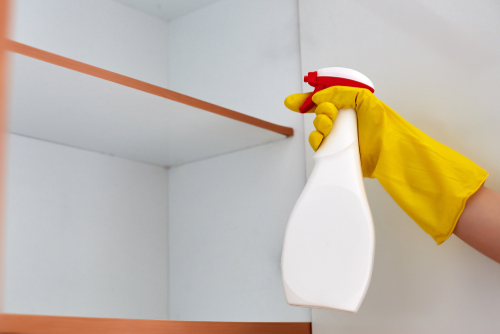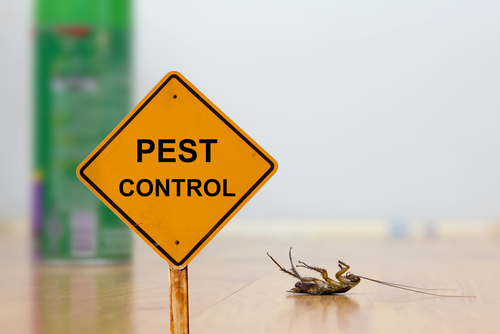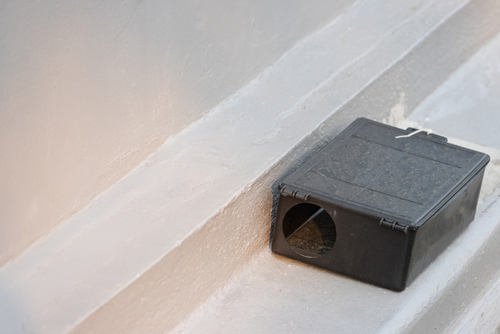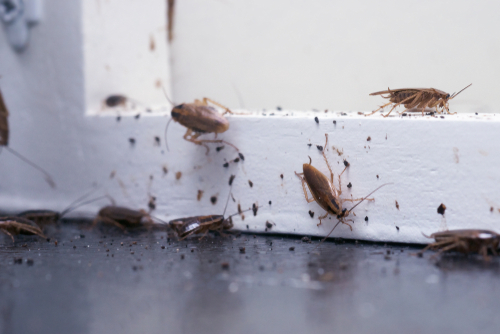
The Importance of Timely Pest Inspection and Identification
April 25, 2024
Best Practices for Cleaning and Laundering Bedbug-Infested Items
July 9, 2024DIY Pest Control: What Works and What Doesn’t

DIY Pest Control What Works and What Doesn’t
DIY Pest Control: What Works and What Doesn’t? Effective pest control is crucial for maintaining a healthy home environment.
This article explores various DIY pest control methods, detailing their effectiveness and limitations to help homeowners make informed decisions. Read on!
Common Household Pests
Homes can harbor a variety of pests, including insects like ants, cockroaches, and bedbugs, as well as rodents such as mice and rats. Each pest type presents unique challenges and requires different management strategies.
Pests are primarily attracted to homes that provide easy access to food, water, and shelter. Common attractants include unsealed food containers, leaky pipes, and cluttered storage areas.
Evaluating DIY Pest Control Methods
Physical Barriers and Traps
Installing physical barriers like window screens and door sweeps can effectively prevent pests from entering the home. Various types of traps, such as snap traps for rodents and sticky traps for insects, can also be effective when used correctly.
Natural Repellents and Solutions
Natural substances such as essential oils (e.g., peppermint, tea tree), vinegar, and diatomaceous earth can deter pests. However, their effectiveness often depends on the type of pest and the extent of the infestation.
What Doesn’t Work in DIY Pest Control

Ineffective Homemade Remedies
Some commonly touted DIY pest control solutions, like ultrasonic repellents or mothballs for non-target pests, have been proven ineffective in scientific studies. Relying solely on these methods can allow pest problems to escalate.
Risks and Limitations of Certain DIY Methods
Some DIY pest control methods pose potential hazards, such as the misuse of homemade chemical mixtures which can be toxic to humans and pets.
Additionally, certain approaches may only provide temporary relief, failing to address the root cause of the infestation.
Chemical Solutions: Safe Use and Precautions
Over-the-counter chemical treatments include sprays, baits, and powders. While these can be effective against common pests, understanding the specific purpose and proper application of each product is essential for them to be effective.
It is crucial to follow safety guidelines when using chemical pesticides, including wearing protective gear, properly ventilating the area, and strictly adhering to the product’s instructions to prevent adverse effects on health and the environment.
Preventative Measures to Keep Pests Away
Importance of Home Maintenance
Regular home maintenance, such as sealing cracks and fixing leaks, is essential in preventing pests from entering the home. Keeping the home clean and free of food debris also reduces the likelihood of infestations.
Landscaping and Outdoor Maintenance
Proper yard care, including the removal of standing water and regular trimming of overgrown vegetation, can significantly reduce pest activity around the home by eliminating breeding grounds and hiding spots.
When to Call a Professional

DIY pest control has its limitations, especially for severe or widespread infestations. Certain pests, like termites or extensive rodent populations, require professional treatment to be effectively managed.
When professional help is needed, choosing the right pest control service is critical. Look for providers with good reputations, proper licenses, and a commitment to safety, especially regarding treatments in homes with children or pets.
Integrating DIY Pest Control into Routine Home Maintenance
Develop a pest control calendar that schedules regular activities such as inspections, cleanings, and the checking and resetting of traps. This proactive approach helps maintain a pest-free environment.
Keep a log of what DIY methods are applied and note their effectiveness. Monitoring results and adjusting strategies as needed can optimize pest control efforts and prevent future infestations.
FAQ

How often should I check and clean pest traps in my home?
Pest traps should be checked and cleaned at least once a week to ensure they remain effective. For traps in high-activity areas or those catching many pests, more frequent checks may be necessary.
Can essential oils be harmful to pets when used for pest control?
Some essential oils, such as peppermint, tea tree, and eucalyptus, can be harmful to pets, especially cats and dogs, if not used correctly.
Always dilute essential oils adequately and place them out of reach of pets. Consult a veterinarian before using them to ensure they are safe for use around your particular animals.
Are there any health risks associated with over-the-counter pest control products?
Yes, some over-the-counter pest control products can pose health risks if not used according to the manufacturer’s instructions.
Products containing chemicals can be harmful if inhaled or if they come into contact with skin or eyes. Always use protective gear and ensure proper ventilation when applying these products.
How can I tell if my DIY pest control methods are effective?
Monitor the affected areas regularly to check for signs of pest activity, such as droppings, damage, or live pests.
A decrease or absence of these signs typically indicates that your methods are working. Keeping a detailed record of pest sightings and the methods used can also help assess effectiveness over time.
DIY Pest Control: What Works and What Doesn’t – Conclusion

While many DIY pest control methods can be effective for minor infestations and preventive care, understanding what works and what doesn’t is crucial.
For more serious issues, professional services may be necessary. By combining DIY efforts with professional advice when needed, homeowners can maintain a pest-free environment effectively.
Are you seeking a professional and reliable pest control service in Singapore? Contact us today!



